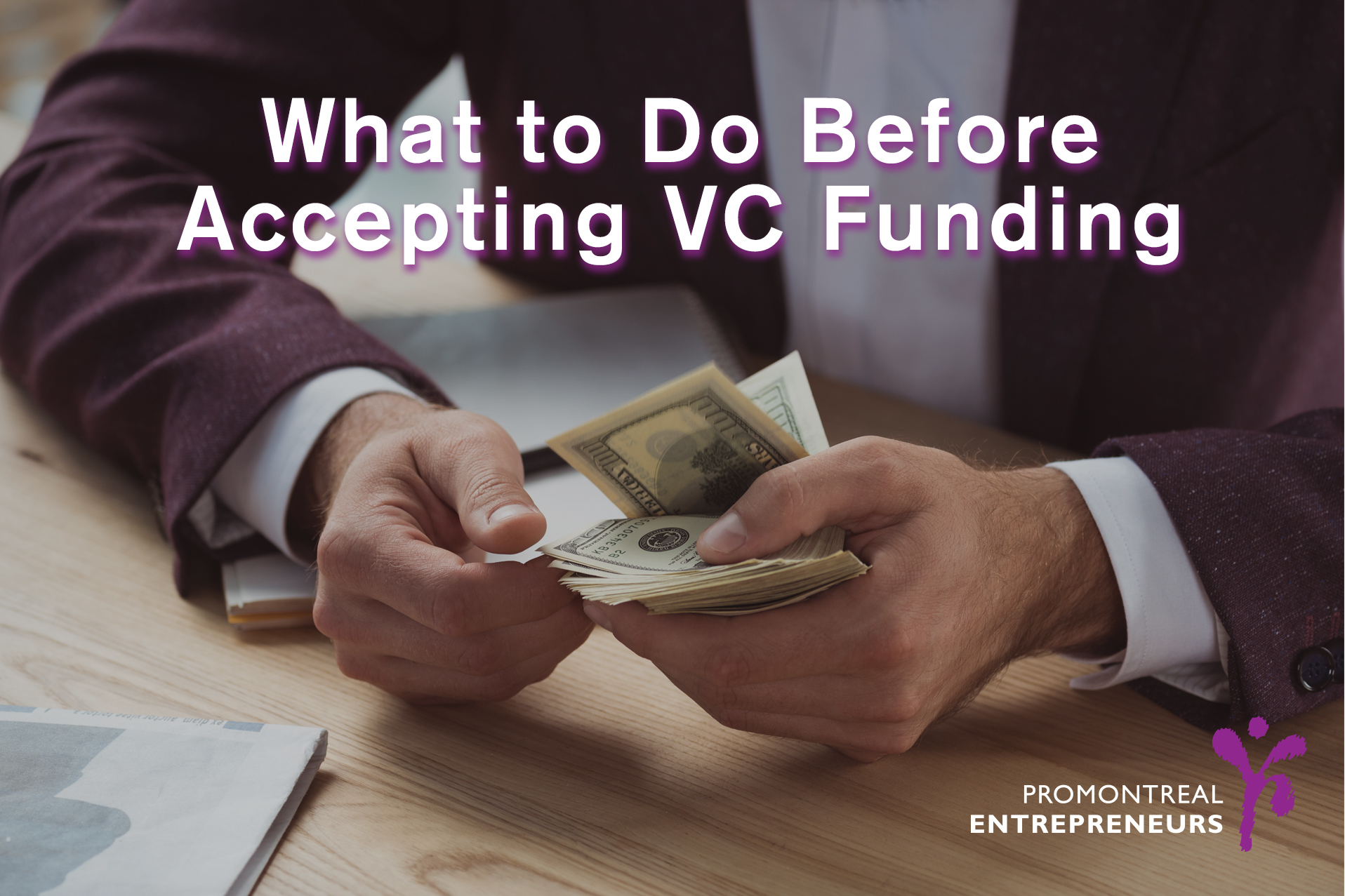All start-up investors are not the same. Struggling entrepreneurs are often so happy to get a funding offer that they neglect the recommended reverse due diligence on the investors. Taking on equity investors to fund your company is much like getting married, it is a long term relationship that has to work at all levels. Investors will conduct due diligence and have a number of questions about your startup . But it is equally important that you understand the venture firm and the individual venture capitalist or angel investor who is considering an investment in your company. Though likely tempted to accept more capital, there are certain things all entrepreneurs must consider before accepting VC funding. More money is great, but weighing what this can imply for the future of your startup is crucial. In order to avoid accepting an investment you will regret down the line, here are a few things you should do before accepting VC funding.
- Think about whether your investor can offer more than just a check
It is crucial that you research VCs thoroughly before you submit your pitch deck. Every venture capitalist has an investment thesis, strategy and approach to making decisions. If your business is technological, seek venture capitalists who help entrepreneurs in the tech field. Likewise, seek VCs who fund businesses in your stage of development whether it is a startup or an expansion. Having more capital is great, but think about other attributes that can benefit you long-term. Your research will help you determine if your business and team are aligned with the venture capitalist’s process.
You should ask about your investor’s investment track record. This is a follow-on about domain expertise and the experience of the specific VC. What are they most proud of? What was their contribution to the success of startups? This is also a way to identify other CEOs that have worked with this VC and get their perspective about the contribution the VC. Also, all investors do their due-diligence about a startup before investing. Entrepreneurs should be doing the same regarding investor. Reverse due-diligence is a process whereby entrepreneurs seek to validate the track record, operating style and motivation of their potential partner.
-
Analyze the terms of the investment
If a VC plans to embark on the journey with you, make sure you understand what his intentions are. Read the contract terms carefully. Have an experienced third party review the conditions of your partnership. For instance, it is important to know how involved they plan to be in the decision-making, and the stake they want to take. If a VC plans on taking a board seat, you want to make sure they will add value. Making sure you have the best people at the table is important.
More money is definitely tempting, especially for startups lacking capital. But it should be understood that receiving money from a VC has long-term consequences. For this reason
don’t succumb to the temptation to take funds from investors that you are not totally comfortable with. It is important to make sure that the partnership is a good fit, and compatible with your goals and ambitions.That means you and your business must benefit from both the money and mentoring from the investor, and the investor will win from getting a larger return sooner. Win-win relationships get better over time, whereas win-lose go downhill fast. Never underestimate the importance of doing your due-diligence, and reading the fine print.
 Email This Post
Email This Post



